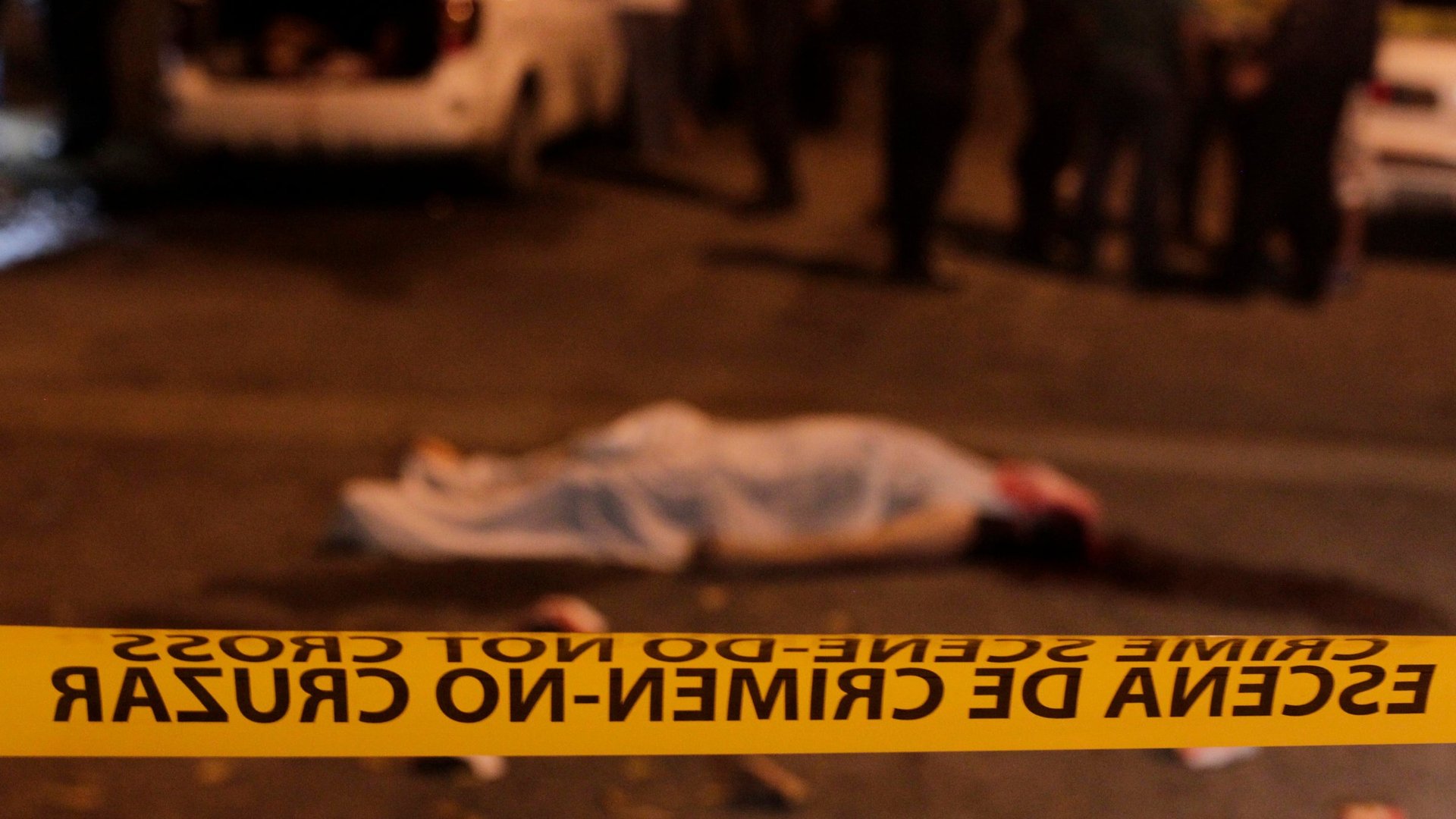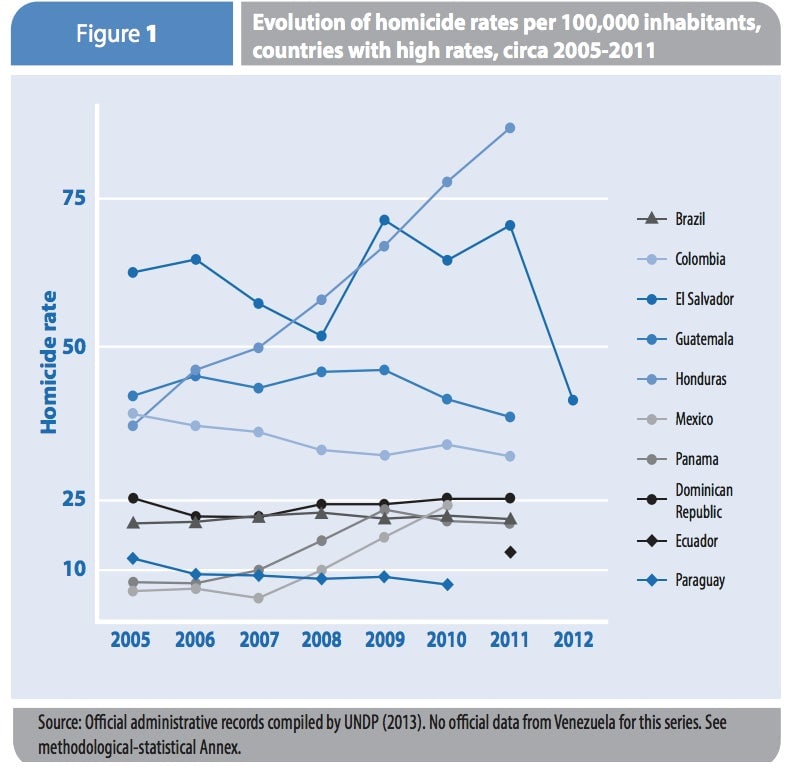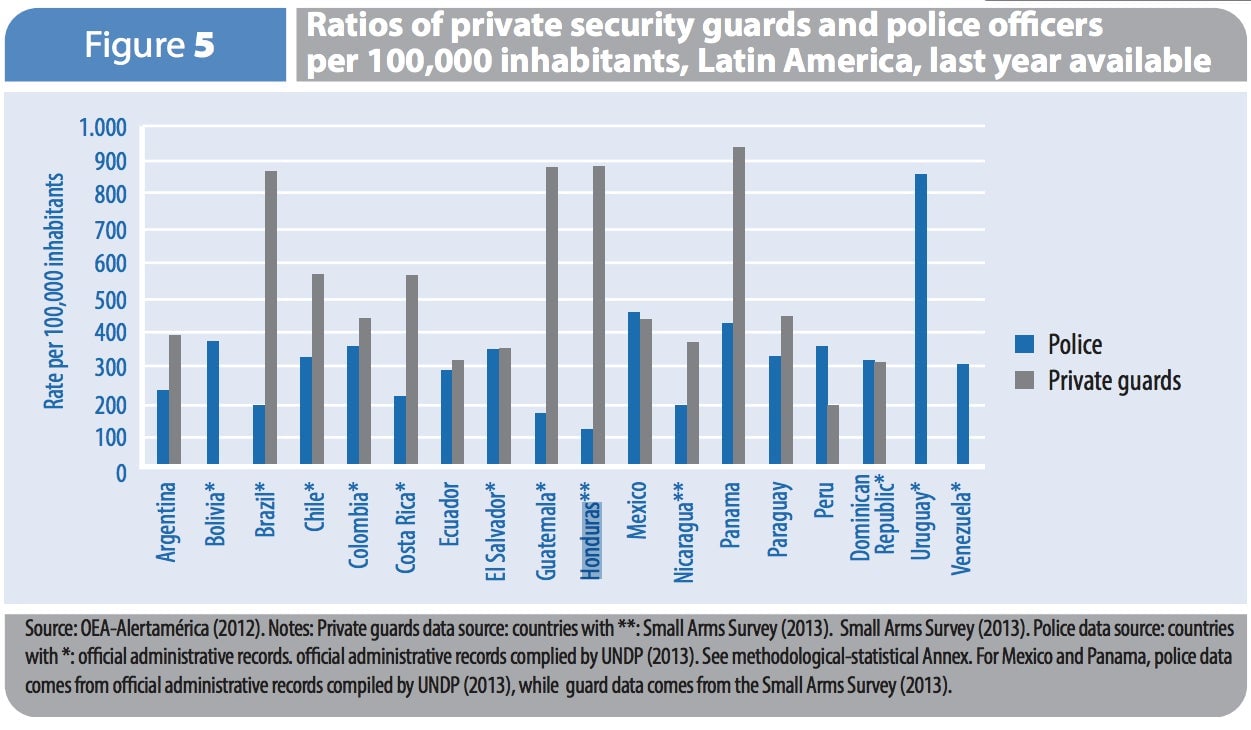The world’s most dangerous country is up to 20 murders a day
A United Nations report (pdf) released on Nov. 12 highlights Latin America’s problem with violence. It was the only region where homicides overall increased between 2000 and 2010. But one country has it especially bad: Honduras.


A United Nations report (pdf) released on Nov. 12 highlights Latin America’s problem with violence. It was the only region where homicides overall increased between 2000 and 2010. But one country has it especially bad: Honduras.
The likes of Mexico and Brazil may be better known for their crime and drug-related killings, but Honduras now has the highest homicide rate in the world. While most countries in Latin America have seen their murder rates fall over the past decade, that of Honduras has more than doubled in six years, to 85 per 100,000 people, or 20 murders a day. Latin America’s homicide rate is closer to 25 per 100,000. The US’s is 4.7.

Honduras’s rising homicides are part of a general rise in crime: Petty thefts and robberies are through the roof as well. From 2007 to 2012, the number of thefts per 100,000 inhabitants jumped by 732%, according to the UN report.
Part of the problem is the Honduran police force, which is not only corrupt but itself has been accused of severe abuses. It’s probably too small as well. Of the countries surveyed by the UN, Honduras had the smallest ratio of police to people by far, and a correspondingly large share of unregulated, private security guards.

But the country’s spiraling violence likely has more to do with its location. Drugs bound for Mexico and the US regularly pass through Honduras, and a recent Mexican crackdown on gang-related violence means gangs have spilled out to nearby countries with laxer laws and oversight, like Honduras. As a result, tens of thousands of gang members both foreign and home-grown now crawl the country’s streets, and tens of millions of dollars in criminal cash is being confiscated every year.
A presidential election on November 24 could be crucial. It’s been four years since a military coup dethroned democratically elected president Manuel Zelaya. While there’s hope for a turn back towards democracy, the election could just end up being a charade stage-managed by the military.